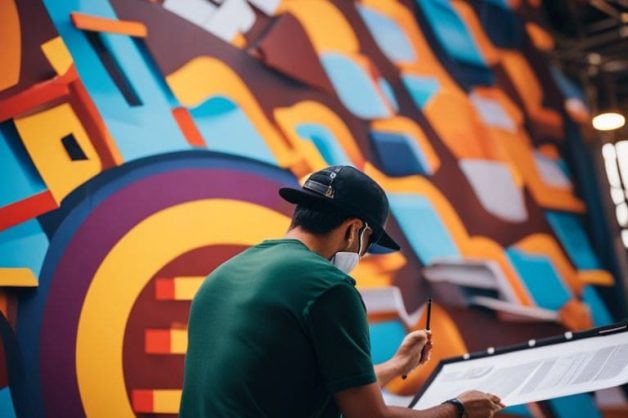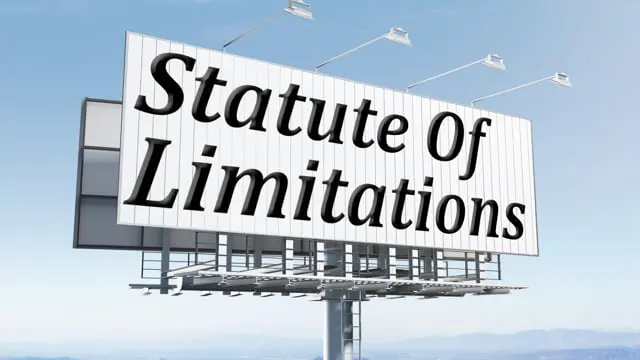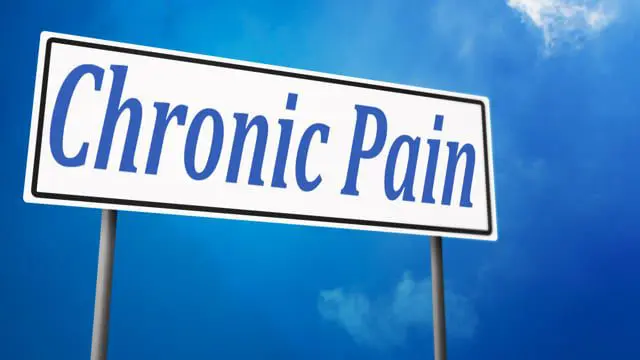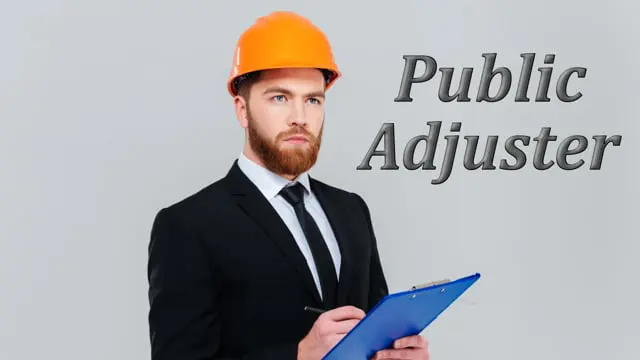Copyright laws are designed to protect the intellectual property of creators, ensuring they have exclusive rights to their works. These laws cover a broad range of creative outputs, including literature, music, art, and software. Understanding copyright laws is crucial for creators and businesses to protect their intellectual property and avoid infringement.
What is Copyright?
Copyright is a legal concept that grants creators exclusive rights to their original works of authorship. These rights include the ability to reproduce, distribute, perform, display, and create derivative works. Copyright protection arises automatically when a work is fixed in a tangible medium of expression.
Key Components of Copyright Law
- Exclusive Rights: Copyright law grants creators exclusive rights to use and authorize the use of their works. These rights include reproduction, distribution, public performance, public display, and the creation of derivative works.
- Duration of Protection: Copyright protection typically lasts for the life of the author plus an additional 70 years. For works created by corporations, the protection lasts for 95 years from publication or 120 years from creation, whichever is shorter.
- Fair Use: Fair use is a limitation on copyright that allows limited use of copyrighted material without permission from the rights holder for purposes such as criticism, comment, news reporting, teaching, scholarship, and research.
Casos prácticos o ejemplos
Real-life examples illustrate the application and importance of copyright laws:
- Case Study 1: The landmark case of Rogers v. Koons involved a sculptor who used a photograph without permission to create a sculpture. The court ruled that the sculptor had infringed the photographer’s copyright, underscoring the importance of obtaining permission before using copyrighted works.
- Case Study 2: In the case of Google LLC v. Oracle America, Inc., Oracle sued Google for copyright infringement over the use of Java APIs in the Android operating system. The Supreme Court ultimately ruled in favor of Google, determining that its use of the APIs was fair use, highlighting the complexities of copyright law in the tech industry.
Análisis comparativo
A comparative analysis of copyright laws across different jurisdictions provides insights into various legal frameworks:
- United States: The U.S. has a comprehensive copyright law governed by the Copyright Act of 1976. The U.S. Copyright Office oversees copyright registration and enforcement.
- European Union: The EU has harmonized copyright laws across its member states through directives like the Copyright Directive and the Digital Single Market Directive, which aim to modernize and streamline copyright regulations.
- Japan: Japan’s copyright law provides protection for works of authorship and neighboring rights, with a strong emphasis on the moral rights of authors. Japan also has provisions for the use of copyrighted works in education and research under certain conditions.
Desglose detallado de las consecuencias jurídicas
Violations of copyright laws can lead to severe legal consequences for individuals and organizations:
- Daños y perjuicios: Courts can award compensatory and statutory damages to the copyright owner for the unauthorized use of their work. Statutory damages can range from $750 to $30,000 per work, or up to $150,000 for willful infringement.
- Medidas cautelares: Courts can issue injunctions to prevent ongoing or future infringement, requiring the infringing party to stop using the copyrighted material and possibly destroy unauthorized copies.
- Criminal Penalties: In cases of willful infringement for commercial gain, individuals may face criminal charges, leading to fines and imprisonment.
Guía paso a paso con imágenes
A step-by-step guide can help creators and businesses understand how to protect their copyright:
- Create Original Work: Ensure your work is original and fixed in a tangible medium.
- Register Your Copyright: While not required, registering your copyright with the U.S. Copyright Office provides additional legal benefits and is necessary to file an infringement lawsuit.
- Use Copyright Notice: Place a copyright notice on your work to inform others of your ownership. A typical notice includes the © symbol, the year of first publication, and the name of the copyright owner.
- Monitor for Infringement: Regularly check for unauthorized use of your work. Tools like Google Alerts and reverse image search can help identify potential infringements.
- Enforce Your Rights: If you find infringement, contact the infringer with a cease and desist letter. If necessary, file a lawsuit to enforce your rights and seek damages.
Tecnología y herramientas
Modern technology offers tools to assist in managing and enforcing copyright laws:
- Copyright Registration Services: Online platforms like the U.S. Copyright Office’s eCO system allow for easy registration of copyrighted works.
- Digital Rights Management (DRM): DRM technologies protect digital content by controlling how it is used, distributed, and copied.
- Content ID Systems: Platforms like YouTube use Content ID systems to identify and manage copyrighted content automatically, helping creators monetize their works and prevent unauthorized use.
Elementos interactivos
Interactive elements can enhance understanding and engagement with copyright laws:
- Quizzes: Test your knowledge of copyright laws and protections with interactive quizzes.
- Simulations: Participate in simulations that demonstrate the process of copyright registration and enforcement.
- Calculators: Use online calculators to estimate potential damages for copyright infringement cases.
FAQ Section – Questions and Answers
Q: What is copyright infringement? A: Copyright infringement occurs when someone uses a copyrighted work without permission from the copyright owner. This can include reproducing, distributing, performing, or displaying the work without authorization.
Q: How can I avoid copyright infringement? A: To avoid copyright infringement, always seek permission before using someone else’s work. Use licensed or public domain materials, and understand the limits of fair use.
Q: What should I do if my work is infringed? A: If your trademark is infringed, contact the infringer with a cease and desist letter. If the infringement continues, consider filing a lawsuit to enforce your rights and seek damages.
Cambios y tendencias legislativas
Staying informed about legislative changes and trends in copyright laws is crucial:
- New Legislation: Governments regularly update copyright laws to address emerging technologies and new forms of creative expression. Stay informed about new laws and amendments that may impact your rights.
- Judicial Interpretations: Court decisions can significantly affect copyright protections and enforcement. Follow key cases and judicial interpretations to understand their implications.
- Digital Innovations: The rise of digital platforms and technologies has led to new challenges and opportunities in copyright law, such as the regulation of streaming services and the use of artificial intelligence in creative processes.
Consideraciones éticas
Ethical considerations are essential in protecting and advocating for copyright:
- Respect for Original Works: Always respect the rights of creators by seeking permission and providing appropriate credit for their works.
- Fair Use: Understand and apply the principles of fair use responsibly, ensuring that your use of copyrighted material is lawful and ethical.
- Transparency: Maintain transparency in your use of copyrighted materials, clearly indicating when and how you have obtained permission or are relying on fair use.
Type of Attorney for This Type of Legality to Represent the Client and How to Find Them on Attorneys.Media
When dealing with copyright issues, it is essential to seek legal assistance from an attorney specializing in this field. These attorneys can help you navigate the legal process, ensure your rights are protected, and represent you in court.
- Intellectual Property Attorneys: These lawyers specialize in handling intellectual property cases, including copyright, trademark, and patent law. They have extensive knowledge of copyright laws and can provide expert advice and representation.
- Entertainment Law Attorneys: Attorneys with experience in entertainment law can assist creators in the music, film, and media industries with copyright protection and enforcement.
- Litigation Attorneys: These lawyers focus on representing clients in court. If your copyright case goes to trial, a litigation attorney can effectively present your case and seek damages for infringement.
To find a suitable attorney, visit Abogados.Media and search for lawyers specializing in intellectual property, entertainment lawo litigios. The platform offers a comprehensive directory of legal professionals, making it easier to find the right attorney to represent your case.
Additional Case Studies or Examples
Further illustrating the complexities and importance of copyright laws:
- Case Study 3: The case of Campbell v. Acuff-Rose Music, Inc. involved a parody of Roy Orbison’s song “Oh, Pretty Woman” by the rap group 2 Live Crew. The Supreme Court ruled that the parody was fair use, emphasizing that transformative works can qualify for fair use protection.
- Case Study 4: In MGM Studios, Inc. v. Grokster, Ltd., the Supreme Court held that companies could be held liable for copyright infringement if they actively promote the use of their products for infringing purposes. This case highlighted the liability of technology companies in the digital age.
Comparative Analysis Expanded
Diving deeper into the copyright laws of other jurisdictions provides a richer understanding:
- Canada: Canada’s Copyright Act provides similar protections to those in the U.S., with a term of life plus 50 years. Recent amendments include the Copyright Modernization Act, which addresses digital rights management and fair dealing exceptions.
- India: India’s Copyright Act of 1957, amended in 2012, provides robust protections, including provisions for digital rights and extending fair use to cover education and research.
- Australia: Australia’s Copyright Act 1968 includes provisions for moral rights, allowing creators to maintain the integrity of their work and control how it is used. The act also has specific provisions for the digital environment, addressing issues such as internet service provider liability.
Technology and Tools Expanded
Exploring more technologies and tools that assist with copyright management:
- Blockchain Technology: Blockchain can be used to create immutable records of copyright ownership, making it easier to track and verify rights. Platforms like Verisart use blockchain to certify and protect digital art.
- Automated Takedown Services: Services like DMCA.com offer automated takedown notices for unauthorized content, helping creators protect their works more efficiently.
- Artificial Intelligence: AI tools can scan the internet for unauthorized uses of copyrighted material, providing creators with actionable insights and evidence of infringement.
Legislative Changes and Trends Expanded
Discussing ongoing and upcoming trends in copyright law:
- Global Harmonization: Efforts are underway to harmonize copyright laws internationally to provide consistent protection across borders. Treaties like the Berne Convention and the World Intellectual Property Organization (WIPO) Copyright Treaty play a significant role in this process.
- User-Generated Content: As user-generated content platforms grow, there is an increasing need for clear guidelines and protections for both creators and trademark owners. New legislation is being considered to address these challenges.
- Artificial Intelligence and Copyright: The rise of AI-generated content is prompting discussions about whether such works should be eligible for copyright protection and who would own the rights.
Interactive Elements Expanded
Adding more interactive elements to engage users with copyright laws:
- Case Law Database: An interactive database of landmark copyright cases, allowing users to explore case details, rulings, and implications.
- Copyright Registration Tutorial: A step-by-step tutorial on how to register a copyright, complete with video guides and downloadable templates.
- Fair Use Analyzer: An online tool that helps users determine whether their use of a copyrighted work qualifies as fair use, based on a series of questions and guidelines.
FAQ Section Expanded
Q: Can I use copyrighted material for educational purposes? A: Educational use can fall under fair use, but it is not automatic. Consider the purpose, amount, and effect of the use on the market for the original work. Always seek permission if in doubt.
Q: What is a derivative work? A: A derivative work is a new creation that is based on a pre-existing copyrighted work. Examples include translations, adaptations, and musical arrangements. Creating a derivative work requires permission from the copyright owner.
Q: How do I protect my digital content from infringement? A: Use digital rights management (DRM) tools, watermarks, and automated takedown services to protect your digital content. Regularly monitor for unauthorized use and take swift action to enforce your rights.
Conclusión
Understanding and protecting your copyright is crucial for safeguarding your intellectual property and ensuring you receive the benefits of your creative efforts. By staying informed about copyright laws, registering your works, and seeking expert legal assistance when necessary, you can effectively manage and enforce your rights. Utilize available technology and tools, stay updated on legislative changes, and prioritize ethical considerations to ensure a fair and just outcome.
Attorneys.Media Video Document References
- Is Personal Injury Part of Your Law Practice?
- As an Attorney, How Are You Generating Content for Your Online Presence?
- How Can You Help Potential New Clients Get Their Questions Answered?
- How Do You Differentiate Yourself When Someone Looks Online for Help?
- How Do You Differentiate Yourself as a Criminal Defense Attorney?
- Have You Been Thinking About Video Marketing for Your Law Firm?
- Should Attorneys Use Video Marketing to Attract New Clients?
- What Do Potential Clients See When They Research Your Name Online?
- Cómo puede ayudarle Attorneys.Media








